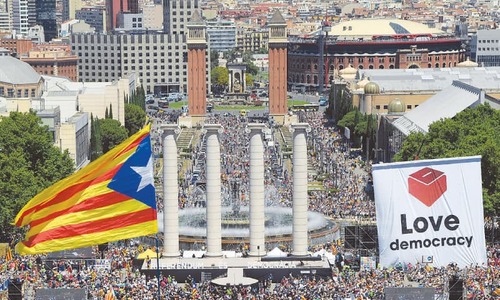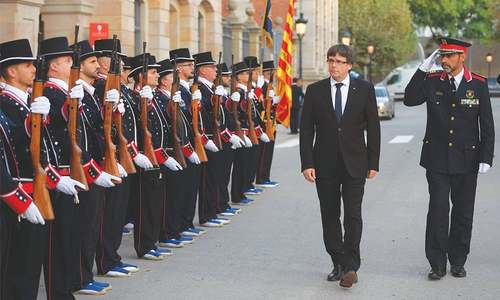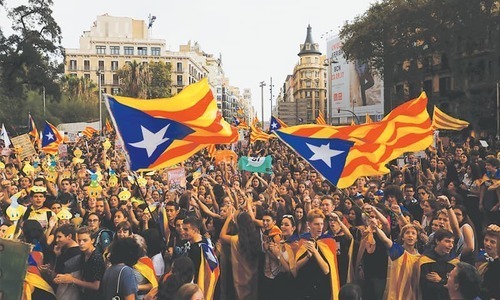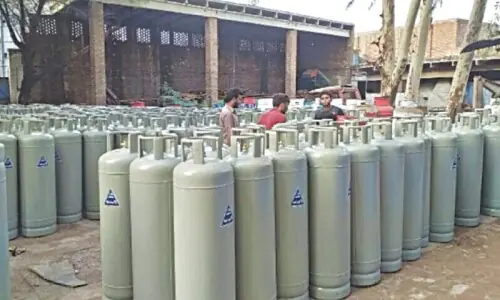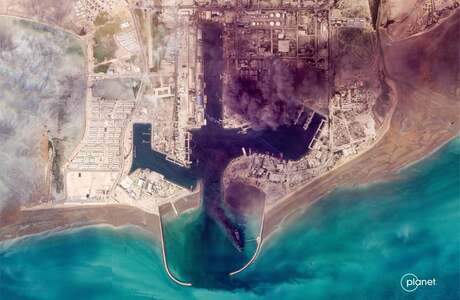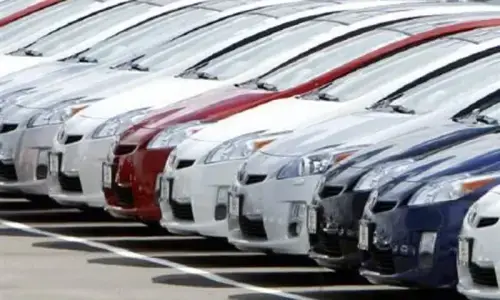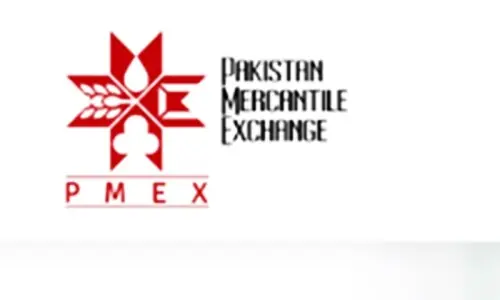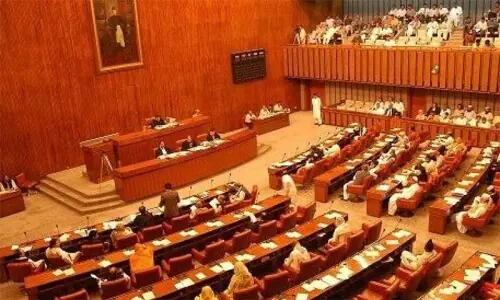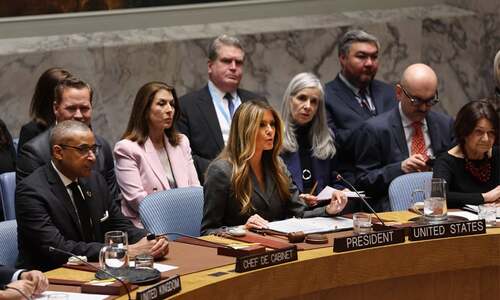EDINBURGH: The standoff between Madrid and supporters of independence in Spain’s wealthy Catalan region has stirred separatist feelings far beyond the Spanish borders.
Politicians across the globe criticised armed Spanish police who used truncheons and rubber bullets on voters, injuring hundreds in a crackdown on Sunday’s secession vote, considered illegal under Spain’s 1978 constitution.
Several politicians from regions with their own separatist movements said it was time for politics to resolve the crisis in the euro zone’s fourth-biggest economy.
Catalan leaders said the result showed people wanted to leave Spain and they would push ahead with secession. Madrid has ruled out talks until, it said, Catalonia acts within the law.
“The solution is political. It won’t be through repression, it won’t be through brutality, and what needs to happen is a political discussion. I think that’s reality,” Quebec’s premier Philippe Couillard told reporters.
He drew parallels for a potential solution to his own province, which has held two referendums on whether to separate from Canada and the last of which in 1995 was narrowly defeated.
Other politicians called on the European Union, currently facing a huge challenge to its unity in Britain’s impending exit from the bloc, to intervene in a deepening crisis that has shaken the euro and Spanish stocks and bonds. They said it was a matter of human rights.
Joanna Cherry, a lawmaker from the Scottish National Party, called on the EU to “up its game”. Her party lost a legally binding referendum on Scottish independence from the UK in 2014 -- the terms of which were hammered out between both sides.
The SNP-led Scottish government is urging talks to let Catalans decide their own future.
“Spain will maintain that this vote is not legitimate, but the strength of feeling demonstrated cannot be ignored by Spain,” it said.
Matt Carthy, European lawmaker for Irish nationalists Sinn Fein whose aim is to unite British-run Northern Ireland with the Irish Republic, called the EU “a shower of utter hypocrites”.
“The EU has ignored a vicious assault on EU citizens in Catalonia because they had the audacity to vote,” he told fellow European lawmakers in an emotionally-charged speech.
“We are told the EU stands for peace, democracy and human rights. Where were those values on Sunday?”
“DISPROPORTIONATE” VIOLENCE: Opinion polls conducted before the Catalan vote suggested a minority of around 40 percent of Catalans backed independence, but a majority wanted a referendum to be held.
Catalan officials released preliminary referendum results showing 90 percent support in favour of breaking away, but turnout was 43 percent and low among those who favour remaining part of Spain mainly boycotted the ballot.
Spain’s constitution determines that the majority which counts is Spain as a whole, not Catalonia’s 5.3 million voters.
Ireland’s prime minister Leo Varadkar has said his government respects Spain’s constitution, but he also described the violence as “disproportionate and counterproductive”.
Spain’s deputy prime minister and European Commission First Vice President Frans Timmermans have said the use of force was “proportionate”.
Turkey, which condemned last week’s referendum for Kurdish independence in northern Iraq, also spoke of the importance of respecting Spanish law and territorial integrity.
“We believe that Spain will overcome such challenges and establish a national dialogue environment through a democratic approach,” Turkey’s foreign ministry said.
In Serbia, officials accused the EU of double standards by refusing to recognise Catalonia’s vote and at the same time supporting the independence of Serbia’s former province Kosovo.
Another would-be breakaway group, the Movement for the Autonomy of Slask (RAS) which wants autonomy for Poland’s Slask region, said that events in Spain were proof of the temptation to use repression to control political dissent.
“The European community should work out rules and procedures for solving similar conflicts,” it said.
“Its indifference with respect to the forceful repression of aspirations of Catalan people for self-rule will be interpreted as a sign of weakness and will deepen the confidence crisis that many Europeans feel towards EU institutions.”—Reuters
Published in Dawn, October 6th, 2017


